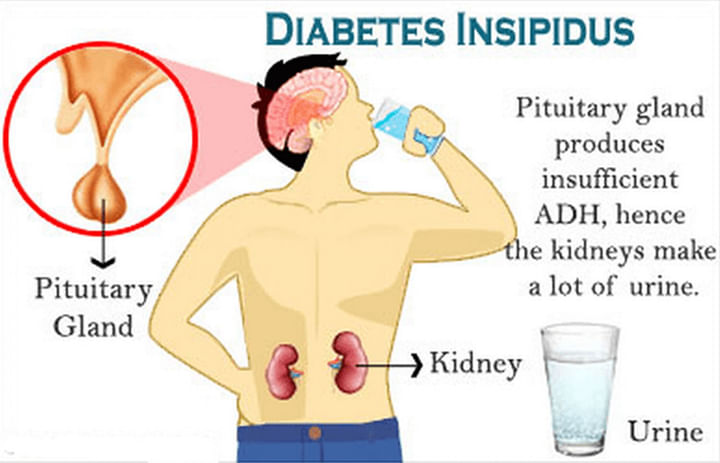Diabetes Insipidus!
Treatment of Diabetes insipidus
Homeopathic Treatment of Diabetes insipidus
Acupuncture & Acupressure Treatment of Diabetes insipidus
Psychotherapy Treatment of Diabetes insipidus
Conventional / Allopathic Treatment of Diabetes insipidus
Surgical Treatment of Diabetes insipidus
Dietary & Herbal Treatment of Diabetes insipidus
Other Treatment of Diabetes insipidus
What is Diabetes insipidus
Symptoms of Diabetes insipidus
Causes of Diabetes insipidus
Risk factors of Diabetes insipidus
Complications of Diabetes insipidus
Lab Investigations and Diagnosis of Diabetes insipidus
Precautions & Prevention of Diabetes insipidus
Treatment of Diabetes Insipidus
Homeopathic Treatment of Diabetes Insipidus
Homeopathy treats the person as a whole. Treatment is constitutional. It means that homeopathic treatment focuses on the patient as a person, as well as his pathological condition. It balances the energy system, improves immunity and body functions. It naturally cures the root cause of disorder. Some common homeopathic medicines for diabetes insipidus are:
Aur M
Equis H
Ferr M
Oxit
Sin N
Sulph
Conventional / Allopathic Treatment of Diabetes insipidus
In the allopathic treatment of diabetes insipidus, a synthetic form of ADH-this drug could be taken by mouth, inhaled through the nose, or by injection. A diuretic “water pill” is also used. Medication called thiazide diuretics conserve water loss and decrease urine output in people with diabetes insipidus.
Dietary & Herbal Treatment of Diabetes insipidus
Eat fruits and vegetables
Eat low sodium diet
Eat at least 5 or 6 small meals a day
Always eat a high-protein breakfast
What is Diabetes insipidus?
Diabetes insipidus is an uncommon disorder characterized by intense thirst and the excretion of large amounts of urine.
Symptoms of Diabetes insipidus
Extreme thirst
Excretion of an excessive amount of diluted urine
Muscle pains
Weight loss
Inconsolable crying in children
Unusually wet diapers in infants
Fever, vomiting or diarrhea
Dry skin with cool extremities
Delayed growth
Causes of Diabetes insipidus
When too little ADH is produced in the body
When there’s enough ADH produced in the body
Risk factors of Diabetes insipidus
High blood levels of calcium
Low blood levels of potassium
Polycystic kidney disease
Complications of Diabetes insipidus
Dehydration
Electrolyte imbalance
Water intoxication
Diagnosis of Diabetes insipidus
Diagnosis of Diabetes insipidus involves the following tests:
Water deprivation test
Urinalysis
Magnetic resonance imaging (MRI)
Genetic screening
Precautions & Prevention of Diabetes insipidus
Eat at least 5 or 6 small meals a day.
Always eat a high-protein breakfast
Manage your insulin
Keeping your body fat percentage down



+1.svg)
